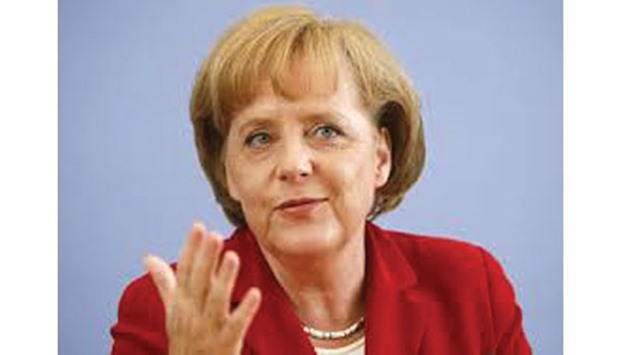Chancellor Angela Merkel’s conservatives lost out in two out of three regional state elections yesterday as Germans gave a thumbs-down to her accommodating refugee policy with a big vote for the anti-immigration Alternative for Germany (AfD).
The poor showing in both Baden-Wuerttemberg and Rhineland-Palatinate represented a worst-case scenario for Merkel, who has staked her legacy on her decision last year to open Germany’s doors to more than 1mn migrants.
The backlash was also visible in Saxony-Anhalt in former East Germany, where Merkel’s conservative Christian Democrats (CDU) remained the largest party but the AfD grabbed 21.5%.
“We have fundamental problems in Germany that led to this election result,” said AfD chief Frauke Petry, whose party entered all three regional parliaments.
The result is a setback for Merkel just as she is trying to use her status as Europe’s most powerful leader to seal a European Union deal with Turkey to stem the tide of migrants.
She alarmed many EU leaders last week by agreeing a last-minute draft deal with Turkey to stop the migrant flow and demanding their support.
Now weakened by the state polls, she must seek their backing this week to seal the deal.
In Baden-Wuerttemberg in the southwest, a CDU stronghold for more than 50 years before turning to a Green-led coalition with the SPD in 2011 after the Fukushima nuclear disaster in Japan, the Greens came home first with 32.5%.
The CDU took 27.5%, according to exit polls on the broadcaster ZDF.
Even more damaging for the CDU was the result in Rhineland-Palatinate, the state of former chancellor Helmut Kohl.
There, the CDU’s Julia Kloeckner, who had positioned herself as a candidate to succeed Merkel one day, lost out to Social Democrat (SPD) incumbent state premier Malu Dreyer.
The SPD won 37.5% of the vote to the CDU’s 33%, the ZDF exit poll indicated.
In Saxony-Anhalt, the CDU remained the biggest party on 30.5%, but the AfD grabbed 21.5%, even surpassing the SPD, Merkel’s coalition partner in Berlin.
It was the first time the AfD had become the second-biggest party in any regional state.
Already represented in five of Germany’s 16 regional parliaments, the anti-immigrant party campaigned on slogans such as “Secure the borders” and “Stop the asylum chaos”.
Turnout in all three states was much higher than in 2011, rising by 5.7 percentage points in Baden-Wuerttemberg, by 9.7 points in Rhineland-Palatinate, and by 11.8 points in Saxony-Anhalt.
The elections are the biggest since Germany registered a record influx of refugees, and are largely regarded as a referendum on Merkel.
“These elections are very important ... as they will serve as a litmus test for the government’s disputed policy” on refugees, Duesseldorf University political scientist Jens Walther told AFP earlier.
“I am voting to teach the chancellor a lesson because of her politics towards refugees,” Ulrich, 78, told AFP in the Saxony-Anhalt capital Magdeburg, declining to give his surname.
Merkel has been under intense pressure to change course and shut Germany’s doors to migrants and refugees.
But she has resolutely refused to impose a cap on arrivals, insisting instead on common European action that includes distributing refugees among the EU’s 28 member states.
She reiterated her point on Thursday, insisting that imposing a limit on refugee numbers was merely a “short-term pseudo-solution”, and that the only measure that would sustainably bring numbers down was a “concerted European approach”.
As dissent has grown over her stance, AfD has capitalised on the darkening mood.
Founded in 2013 as an anti-euro party, AfD has since morphed into one that sparked a storm in January after suggesting police may have to shoot at migrants at the borders.
Ingeborg Klumpp, a 74-year-old pensioner, went to vote in Stuttgart in the hope that “with my little cross on the ballot paper, I will contribute to the fact that people won’t vote for the AfD”.
“The campaign of hatred they ran these last weeks was horrible,” she said.
On the eve of the vote, Interior Minister Thomas de Maiziere joined calls from both the political mainstream as well as civic and religious groups, urging the electorate to shun AfD.
“AfD has no political programme and no capacity to resolve problems,” he told Die Welt daily on Saturday. “We must make it clear – this party hurts our country.”
Merkel herself described AfD as a “party that does not bring cohesion in society and offers no appropriate solutions to problems, but only stokes prejudices and divisions”.
She has also shrugged them off as a temporary diversion saying that once her government’s policies show results on reducing migrant numbers, “I’m convinced that from there, the support that AfD is enjoying right now will drop off”.

MERKEL
